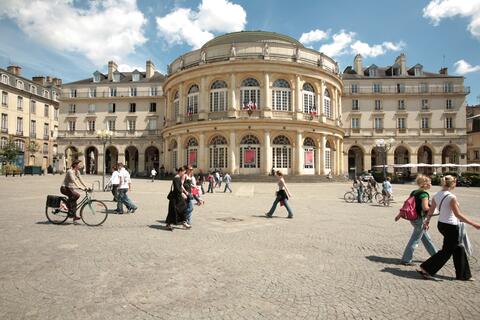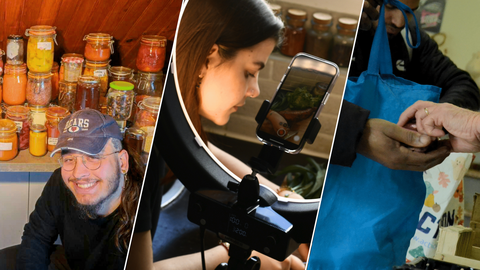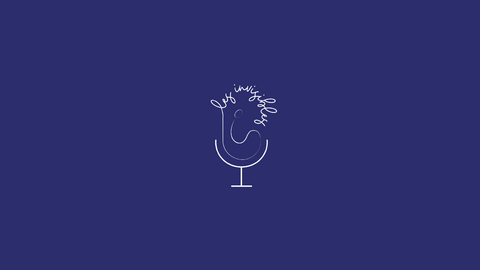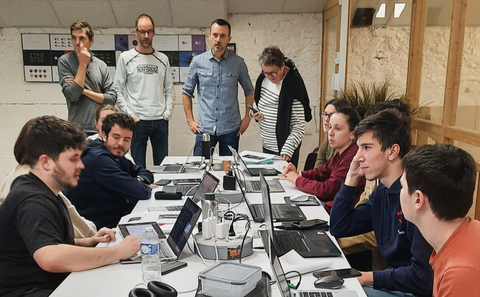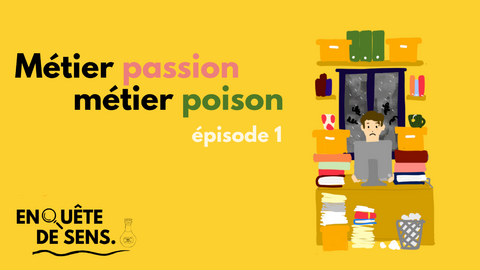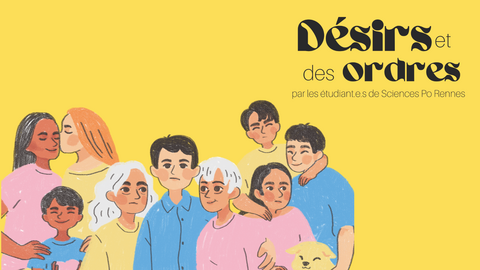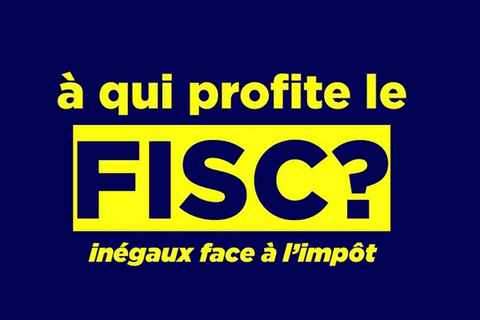The Master’s-level Investigative journalism and reporting program trains future journalists in investigative and other types of reporting using methods based on social sciences and journalism.

The Masters-level Investigative journalism and reporting program trains future journalists in investigative and other types of reporting using methods based on social sciences and journalism.
The Master’s-level Investigative journalism and reporting program is completed in two years, in fourth and fifth year. The degree is only awarded upon the completion of the full two-year program.
Fourth-year curriculum
- Core learning: European macroeconomics, labor law, history of international affairs, organizational studies. Languages: Choice of a second and third language. Optional courses: Careers in politics and communication, cultural history
- Specialty courses: Sociology of journalism, copyright and related rights, socio-economics of the media, audiovisual and radio journalism: analysis and practice (includes one week of television reporting with the Ecole Supérieure de Réalisation Audiovisuelle (ESRA) and morning news radio production with the Institut Supérieur des Techniques du Son (ISTS), digital journalism: analysis and practice (information monitoring and online journalism).
- Methodology and career guidance: New multimedia writing, career planning module (resume and cover letter writing, professional conferences), journalism seminar (core subjects, photography, the legal system, interview techniques, portraits). Mandatory project module.
Fifth-year curriculum
- Journalism as a practice: Ethics and sources, narrative journalism, media law, transformations, research conferences.
- Producing information: Reporting, online journalism and digital media (includes a hackathon in cooperation with IT and graphics students), data journalism, radio documentaries, television workshops (includes a week exploring news specials in partnership with ESRA), production and broadcasting partnerships with different media and different formats.
- Field reporting: Socio-ethnographic investigation methods (dissertation), investigative reporting methods. Investigative editorial projects: production of school-related long format, podcast, or video media, published on line in partnership with the France 3 Bretagne regional television network.
- Minimum three-month internship beginning in April, with the preparation and presentation of a report.
The program explores four areas of expertise in journalism:
- Understanding field reporting
- Research and documentation
- Analytical skills
- Writing for multi-media journalism
- Program intake: The two-year program begins in fourth year. It is open to undergraduate students at Sciences Po Rennes (admission is based on an application); incoming fourth-year students based on an application and the fourth-year entrance exam, three-year undergraduate degree (L3) holders, and students in Khâgne preparatory programs who qualify as ‘sous-admissible’ or ‘admissible’ to an Ecole normale supérieure (ENS).

Graduates of the program are able to propose original news stories, investigate in the field, document a story with pertinent information and analyse the social impact of an event.
The program focuses on print and online journalism and provides a practical approach to radio and video.
>Primary career opportunities:
- general and specialized news media (news, general and professional print magazine);
- specialized web and print services of national and regional general news media (society, economics, etc.);
- on-line investigative media, audiovisual production agencies;
- national and regional television and radio newsrooms.


